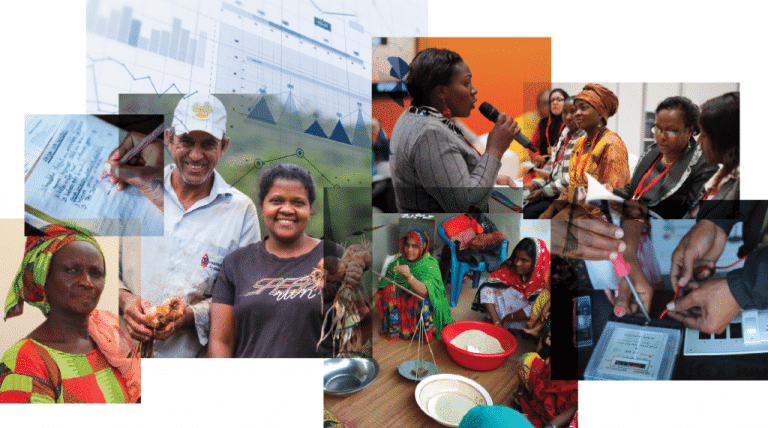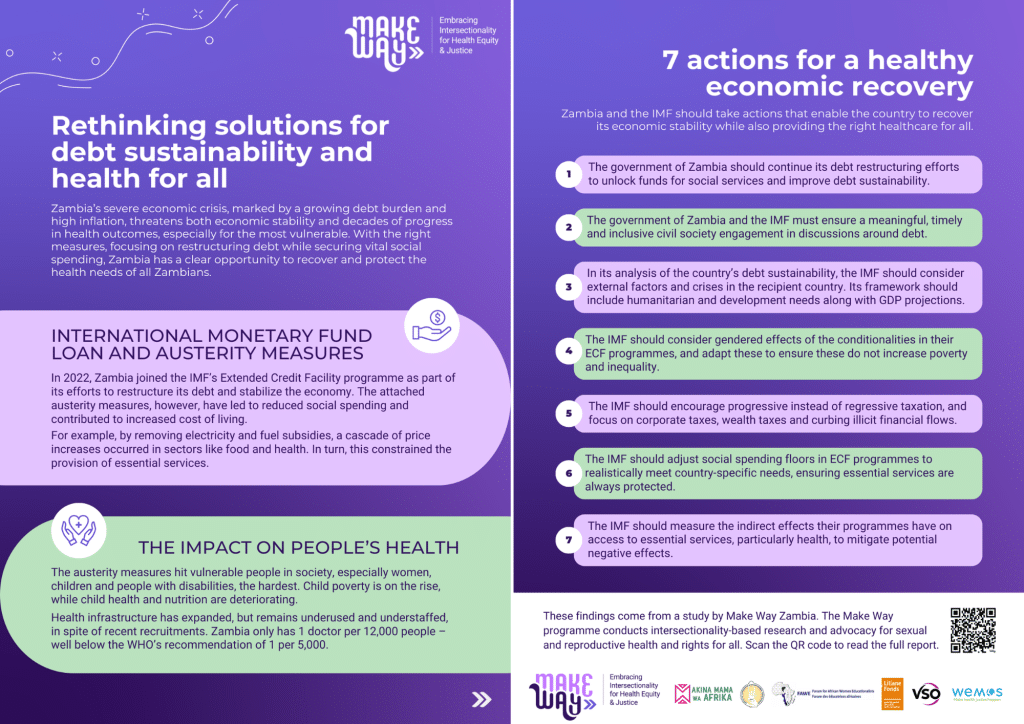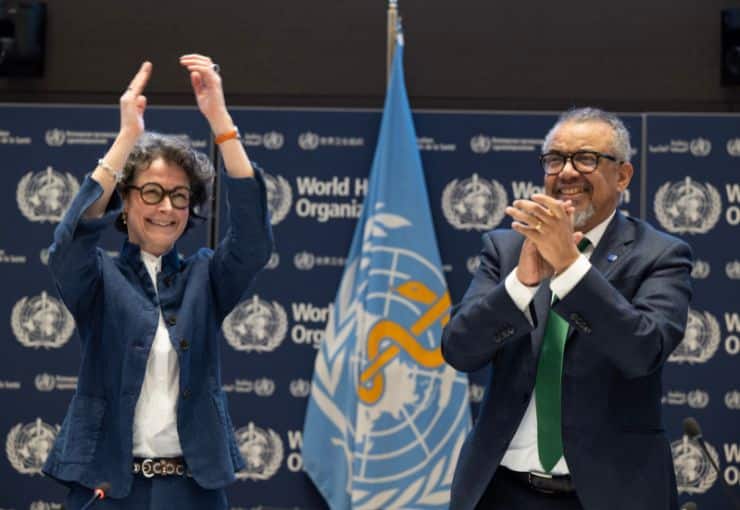The impacts of the IMF measures on access to essential services
Zambia is grappling with a severe economic crisis, marked by high inflation, rising poverty and an external debt burden of USD 14.5 billion in 2023. In an effort to stabilize the economy, Zambia secured a USD 1.7 billion loan from the IMF under the Extended Credit Facility (ECF). However, the austerity measures imposed by the IMF are exacerbating socio-economic inequalities and hindering access to quality healthcare.
The removal of subsidies and rising inflation have driven up the cost of living, making it harder for families to afford healthcare, transportation to clinics, and out-of-pocket expenses for essential medicines. Health facilities, especially in rural areas, face critical shortages of staff and essential supplies, including essential medicines.
The result is a sharp decline in household income and reduced access to essential health services, particularly in marginalized communities. Women, LGBTQIA+ persons and vulnerable populations are disproportionately affected, as they depend heavily on public health services that are becoming increasingly unaffordable and inaccessible.
Challenges of the health sector funding
While the health sector’s budget has nominally increased from 8% in 2022 to 11.8% in 2024, high inflation has reduced the real value of these investments, leaving the healthcare system underfunded and understaffed. In addition, Zambia’s heavy reliance on external funding for its health system also makes it vulnerable to shifting international priorities, which can undermine long-term health investments. These issues, coupled with high debt servicing costs, restrict the government’s ability to invest in the health system.
Therefore, despite the IMF’s goal of restoring fiscal stability, its austerity measures have intensified economic challenges. Its approach does not adequately consider the social impacts of its policies, leaving marginalized groups at greater risk of poor health outcomes and financial instability.






